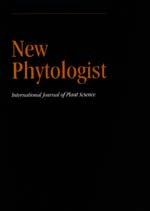No CrossRef data available.
Article contents
Abstract
New Phytologist welcomes this month, and introduces, its new Managing Editor, Jonathan Ingram. He comes to New Phytologist from Elsevier Science's Trends in Plant Science, where he has worked as Assistant Editor since the highly successful launch of that magazine in January 1996.
Jonathan's introduction to plant science, at Oxford over 10 years ago, was through the excellent tuition of Vernon Butt in a traditional botany degree. He then took a DPhil with Andrew Smith and Chris Leaver, learning biochemical and molecular research methods while studying malate decarboxylation associated with Crassulacean acid metabolism. He subsequently moved to the Max Planck Institute for Breeding Research in Cologne, Germany, where he did research with Dorothea Bartels into the molecular mechanism of drought tolerance in the resurrection plant Craterostigma plantagineum, specifically the role of sucrose-phosphate synthase.
These are challenging times in science publishing, particularly as technological advances force rapid change, but there are also many exciting new opportunities. Jonathan's experience and background will help New Phytologist remain in the vanguard of plant journals, while maintaining its traditions of scientific excellence and friendly service to authors and readers, traditions carefully nurtured by his predecessor David Stribley.
We wish David improved health and a happy retirement.
- Type
- Editorial
- Information
- Copyright
- © Trustees of New Phytologist 1998


